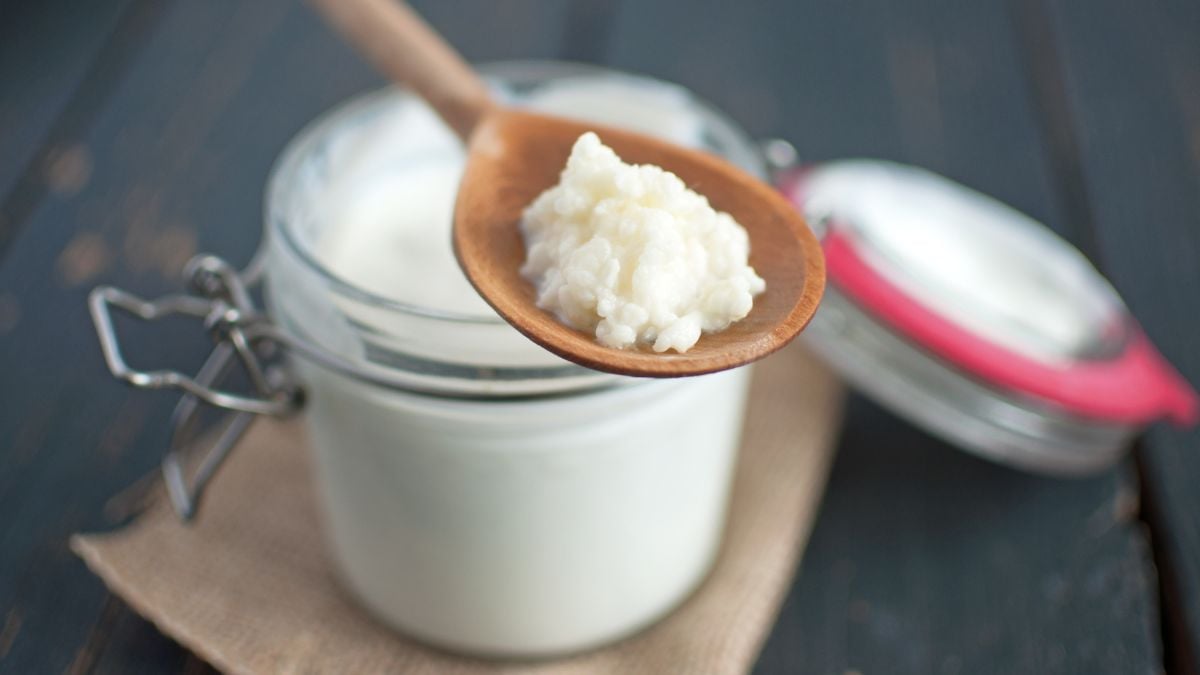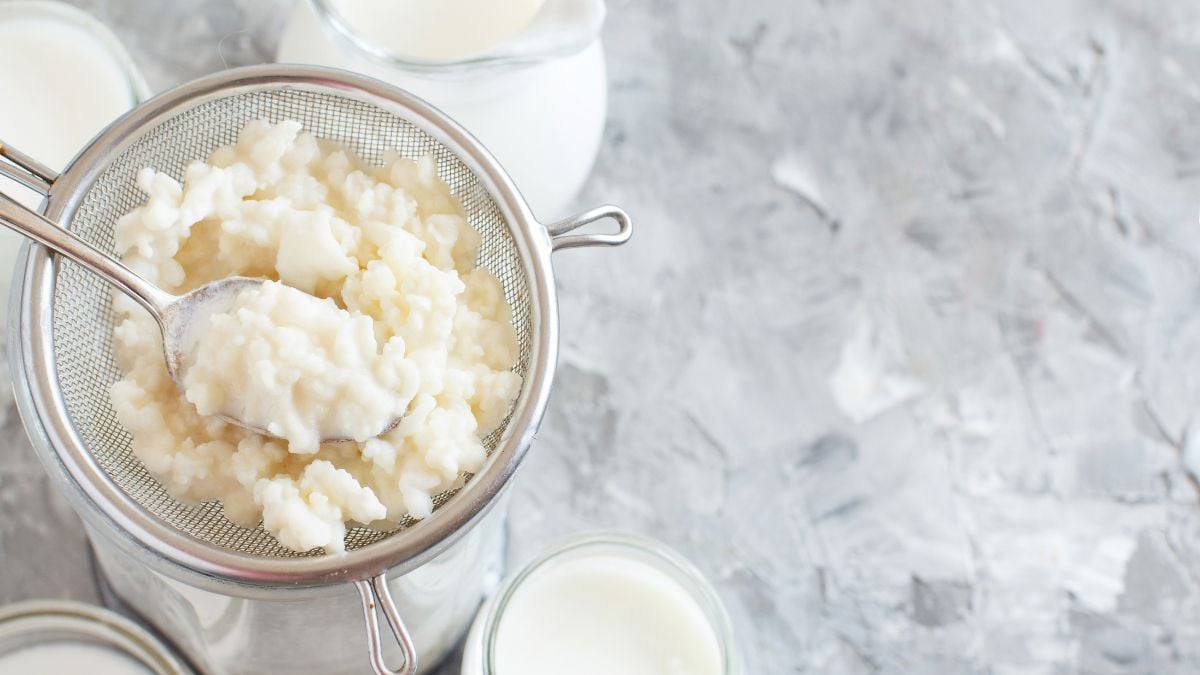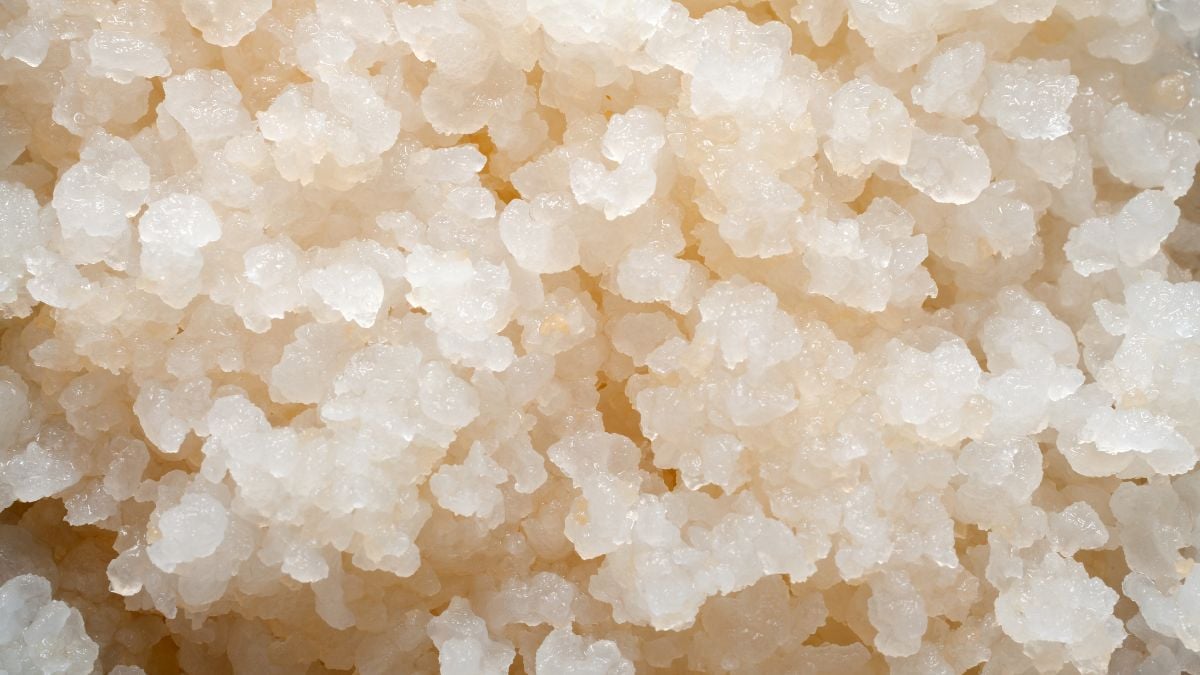
Kefir is a fermented milk beverage that traces its roots to the mountainous Caucasus region between Europe and Asia. The name comes from the Turkish word keyif, meaning “good feeling,” reflecting the positive sensation attributed to its consumption. Traditionally, it is made by introducing kefir grains—a symbiotic culture of bacteria and yeasts—into milk, where they ferment the natural sugars, creating a probiotic-rich drink.
Preparation involves combining active kefir grains with milk, typically cow’s, goat’s, or sheep’s milk. The mixture ferments at room temperature (about 70°F or 21°C) for 12–48 hours. During fermentation, kefiran, a polysaccharide, forms a gel-like matrix around the grains, contributing to kefir’s creamy texture. Non-dairy alternatives like coconut, oat, and almond milk can also be used.
ALSO READ. Smashburger launches new summer shakes! What are they like and when will they be available?
What does kefir do to your body?
This beverage consumption impacts the body in several profound ways. “Kefir contains probiotics and the kefiran prebiotic which contribute to wellness and human health,” notes a review from the Revista Iberoamericana de Ciencias. These live microorganisms aid digestion, enhance gut microbiota balance, support immune function, and exhibit anti-inflammatory and antimicrobial properties.
Studies have shown that regular kefir consumption can help:
- Balance intestinal flora by boosting beneficial bacteria like Bifidobacteria and reducing harmful pathogens such as Proteobacteria.
- Improve gut barrier function, reducing intestinal inflammation and conditions like colitis
- Lower fasting blood glucose and insulin levels, aiding diabetes management
- Decrease cholesterol levels, benefiting cardiovascular healt
- Offer antimicrobial effects, inhibiting pathogens such as Salmonella

Is more healthier than yogurt?
Kefir and yogurt both offer health benefits but differ in several important ways. It tends to contain a greater diversity of probiotic strains than yogurt, enhancing its impact on gut microbiota. Moreover, kefir is slightly carbonated, has a thinner consistency, and often boasts a tart flavor profile.
While yogurt typically includes a few probiotic species, kefir can contain upwards of 30 or more. The broad probiotic spectrum may make kefir more effective at supporting digestive health, modulating immune responses, and maintaining microbial balance.
In terms of nutrition, both are rich in protein, calcium, potassium, and vitamins B2 and B12. However, kefir’s additional probiotic load gives it an edge for those seeking maximum digestive benefits.
Is kefir just buttermilk?
No, kefir is not the same as buttermilk. Traditional buttermilk is the liquid leftover after churning butter from cream, while cultured buttermilk is milk fermented with lactic acid bacteria. Kefir, on the other hand, involves fermentation by a symbiotic culture of bacteria and yeasts, producing a product that is richer in probiotics and slightly fizzy.
Thus, while both beverages are tangy and fermented, kefir is much more potent in its probiotic content and biological activity.

When is it not advisable to drink kefir?
Though kefir is generally safe for most people, certain groups should exercise caution:
- Individuals with severe lactose intolerance: While fermentation reduces lactose content, trace amounts remain.
- Those with milk allergies
- Immunocompromised individuals: Because it contains live bacteria and yeast, those with weakened immune systems should consult their healthcare provider before consuming it.
Also, people managing diabetes should choose unsweetened kefir varieties to avoid unnecessary sugar intake.
What happens to your body if you consume kefir?
- Enhanced digestive health and relief from conditions like constipation
- Strengthened immune defenses through modulation of gut-associated lymphoid tissue
- Improved blood lipid profiles, including reduced LDL cholesterol
- Better glycemic control, potentially lowering blood sugar and HbA1c levels
- Reduced inflammation throughout the body, offering protection against chronic diseases
Researchers highlight its “anti-inflammatory, antioxidant, antimicrobial, antidiabetic, and cholesterol-lowering” properties.
Is it better to drink it in the morning or at night?
There’s no universal best time to consume it; it largely depends on individual goals:
- Morning: Starting the day with kefir can kickstart digestion and provide a probiotic boost that supports gut health throughout the day.
- Night: in the evening may aid overnight digestion and help balance gut flora while you sleep.
Some people may experience mild digestive discomfort if consuming it on an empty stomach. Listen to your body and adjust accordingly.

What does kefir mean?
As mentioned earlier, “kefir” stems from the Turkish “keyif,” meaning “feeling good.” This reflects the wellness effects historically attributed to the beverage, including its contribution to digestive and overall health【7†source】.
How is kefir made and where can it be found?
Making it at home is simple and requires just a few ingredients and tools:
- Place kefir grains in a sterilized glass jar.
- Add milk (or a milk alternative).
- Cover with a breathable cloth and leave at room temperature for 12–48 hours.
- Strain the grains and store the liquid in the fridge.
It is widely available in health food stores, major supermarkets, and online. Popular brands offer varieties ranging from traditional dairy kefir to coconut, almond, and oat-based options.
How much kefir should you drink per day?
For most individuals, 1 cup (about 240 ml) per day is sufficient to reap the benefits. Beginners may want to start with smaller amounts (around half a cup) to allow their gut to adjust to the influx of probiotics.
Overconsumption could lead to digestive upset in sensitive individuals, so it’s best to introduce it gradually into your diet.
What are the benefits of kefir?
- Digestive health: Supports a balanced microbiota.
- Immune support: Enhances natural defenses.
- Metabolic regulation: Helps control blood sugar and cholesterol.
- Anti-inflammatory effects: Reduces chronic inflammation.
- Antimicrobial activity: Fights pathogenic bacteria
- Bone health: Rich in calcium and vitamin K2, promoting strong bones.
How long does kefir last in the refrigerator?
Homemade or store-bought kefir should be kept tightly sealed in the refrigerator and consumed within 5 to 7 days for optimal flavor and probiotic viability. Over time, it may continue to ferment, leading to increased tartness and slight changes in texture.
If you notice an off smell, significant separation, or mold growth, it’s time to discard it.
⇒ SUBSCRIBE TO OUR CONTENT ON GOOGLE NEWS










